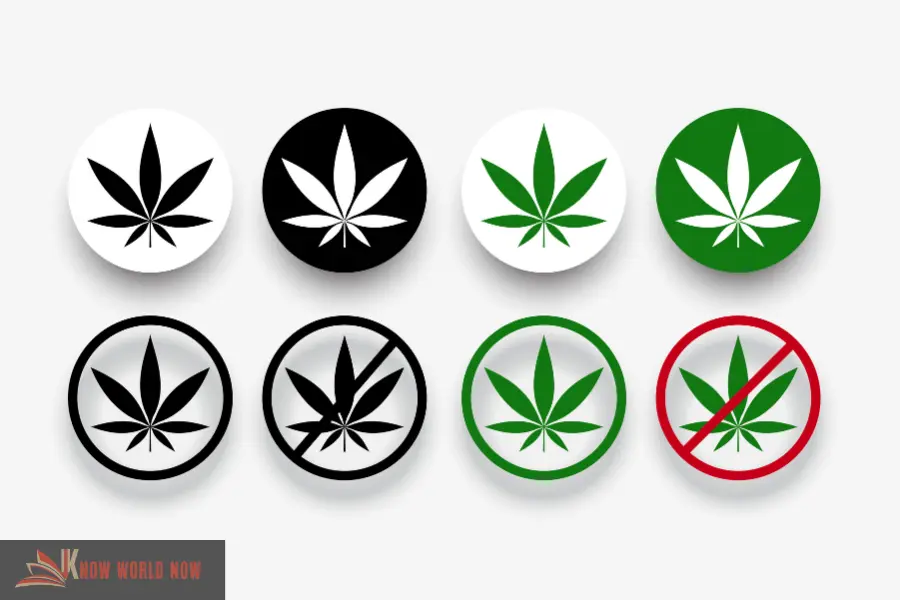The cannabis plant contains over one hundred active compounds, the best-known being delta 9 THC. Delta 9 is the cannabinoid responsible for marijuana’s mind-altering high. The second best-known cannabinoid is cannabidiol (CBD), which has taken the wellness market by storm.
Unlike delta 9, CBD is non-intoxicating. It’s touted for its therapeutic effects and is often used to help manage stress, relieve pain, improve mood, and more.
Over the years, as the cannabis plant has become more mainstream, there has been growing interest in its other active compounds. Recently, delta 8 THC has hit the scene.
You can find delta-8 for sale from numerous CBD retailers in many of the same forms as CBD, including oils, gummies, and vape devices. However, almost as quickly as D8 arrived on the scene, the authorities took notice and started to call for its ban. But why is this? Why are states moving to ban the sale and use of delta 8?
What Is Delta 8 THC?
Like delta-9-THC, delta-8 is also intoxicating. However, it’s believed to be half as potent as D9, producing a much milder high. The two compounds have a similar chemical structure, with the difference being the placement of a carbon bond. This small distinction is the reason for the difference in psychoactivity levels.
Typically, delta-8 is described as producing feelings of euphoria, relaxation, and peacefulness. Many say it does a great job of taking the edge off stress. It’s also known to help with pain management.
Delta 8 is a minor cannabinoid far less abundant in the cannabis plant than delta 9 and CBD. It occurs only at miniscule levels in natural cannabis. Therefore, delta-8-THC is typically produced artificially by chemically converting delta-9 or CBD.
Since hemp is legal to grow and has a high concentration of CBD, it’s the most common source of delta-8. CBD is extracted from hemp and refined into an isolate before being synthesized into D8. Thus, most of the delta-8 products you see for sale online are a synthetic form of the cannabinoid.
What Is the Legal Status of Delta 8?
Like all things cannabis-related, the legal status of delta 8 is a complex issue. Currently, delta 8 THC is federally legal as long as its hemp-derived – which it is in most cases since it is made synthetically from CBD originating from hemp.
The 2018 Farm Bill legalized industrial hemp, defined as cannabis with a delta-9-THC content of less than 0.3%. This ruling opened the market to hemp-derived cannabinoids, including CBD and delta 8. As such, many brands have started selling D8 products.
However, since its boom in popularity, several states have moved to restrict its use or ban it completely. Others are contemplating whether to continue to allow the use of delta 8.
D8 is currently illegal in Alaska, Arkansas, Arizona, Colorado, Delaware, Idaho, Iowa, Kentucky, Mississippi, Montana, New York, Rhode Island, Vermont, and Utah. However, things are constantly changing, and more states may be added to this list. Therefore, checking the legal status of delta 8 in your state is essential to ensure you’re operating within the law.
Why Are Some States Banning Delta-8-THC?
Although delta-8 is federally legal, each state can make its own laws and regulations on cannabinoids. Several have decided to outlaw delta-8-THC due to its ability to cause intoxication and produce a high.
Another concern regarding delta 8 is that the market is unregulated. There is no organization overseeing the safety and quality of these products, so the market is open for pretty much anybody. So while delta 8 itself may not be dangerous, there is a risk that products are contaminated with toxic byproducts or excessive levels of delta 9.
Reputable brands send their products to an independent laboratory for lab testing to ensure purity, safety, and quality. However, there are no rules for all brands to follow this process.
Finally, regulators are skeptical of delta 8 because there is limited research on the cannabinoid. Specifically, studies on experiences with D8 are scarce, so there is a lack of knowledge on how exactly the cannabinoid works and what it does.
Final Thoughts on Why States Are Banning Delta 8
The legal status of delta 8 – the latest cannabinoid creating excitement in the wellness market – is confusing because of conflicting regulations. Moreover, it’s legal in some states but not in others.
The main concern regarding delta 8 THC is that it’s intoxicating, and there is not much research on its safety profile and effects. Since the market is unregulated, there is also the risk of low-quality, contaminated products hitting the shelves.
Hopefully, the increasing popularity of delta 8 will lead to more research and better regulations in the market. There are a few trustworthy brands, like PureKana, selling high-quality D8 products, and it’s not fair that customers should lose out because of a few bad apples.

